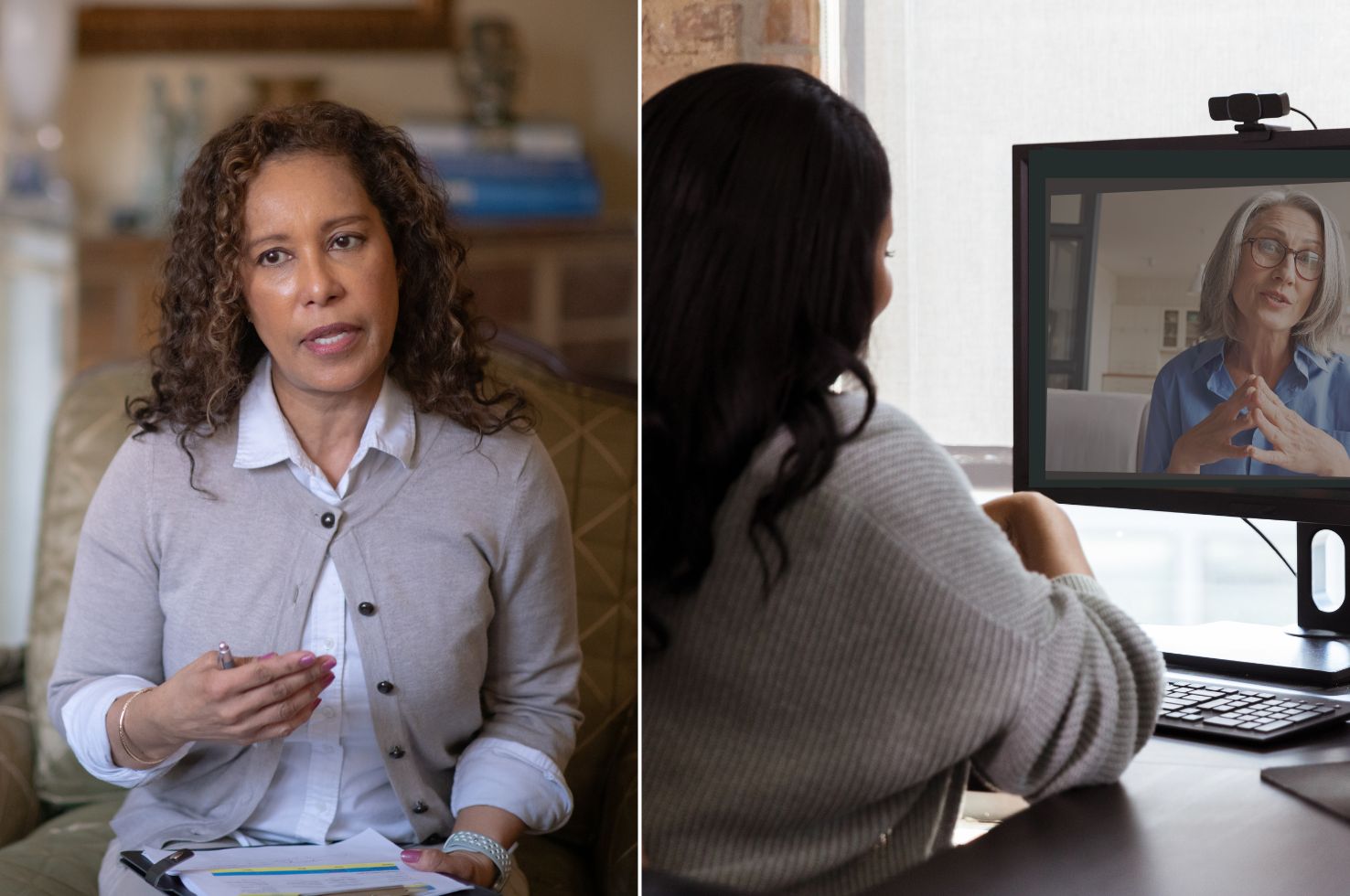Randomized Trial of Brief Interpersonal Psychotherapy and Cognitive Behavioral Therapy for Depression Delivered Both In-Person and by Telehealth

Major depressive disorder (MDD) is associated with substantial psychosocial impairment, increased risk for suicide, and morbidity. As a first-line treatment for MDD, many patients receive cognitive behavioral therapy (CBT) or interpersonal psychotherapy (IPT), interventions that have been typically delivered face-to-face. Despite the ubiquity of telehealth following the COVID-19 pandemic, little is known about differential outcomes with CBT versus IPT delivered in-person or via telehealth, or whether working alliance (the collaborative relationship between therapist and patient) is affected when delivered via telehealth.
Investigators including Holly Swartz, MD (Professor of Psychiatry); and Lauren Bylsma, PhD (Associate Professor of Psychiatry and Assistant Professor of Psychology), from Pitt Psychiatry, randomly assigned adults with MDD to eight sessions of in-person IPT or CBT. However, mid-trial, the onset of the COVID-19 global pandemic forced a transition from in-person therapy to telehealth. The scientists then compared changes in depression for individuals receiving in-person CBT, in-person IPT, telehealth CBT, or telehealth IPT. They additionally compared working alliance scores across treatments and phases.
Results from the study showed that both therapy groups improved significantly over time, with no differences in outcomes between brief IPT and CBT on depression, anxiety, and functioning. In addition, the scientists found no differences in symptomatic or functional outcomes between phases in either treatment group, suggesting that telehealth did not negatively impact the efficacy of IPT or CBT. In addition, despite broad concerns that telehealth compromises the working alliance between therapist and patient, the investigators found that alliance did not differ between in person and telehealth.
“Telehealth has many advantages compared to in-person treatment, including greater flexibility and decreased time burden for both patients and providers. This study should reassure those delivering and receiving psychotherapy for depression via remote video platforms that treatment outcomes do not suffer compared to face-to-face therapy. Comparable working alliance in all groups suggests that patients and therapists can form an effective therapeutic bond, an important mediator of therapy outcomes, even over telehealth platforms,” said Dr. Swartz, the study’s lead author.
Randomized trial of brief interpersonal psychotherapy and cognitive behavioral therapy for depression delivered both in-person and by telehealth
Swartz HA, Bylsma LM, Fournier JC, Girard JM, Spotts C, Cohn JF, Morency LP.
Journal of Affective Disorders Volume 333, 15 July 2023, Pages 543-552. https://doi.org/10.1016/j.jad.2023.04.092
